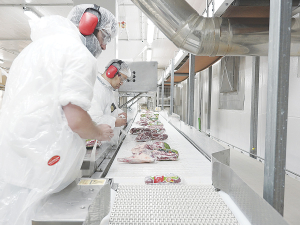Rabobank's September agribusiness report shows farmgate price pressure is expected to remain, with weak fundamentals underpinning difficult trade conditions.
It says dairy prices, hammered hard by August's low forecast price, are likely going to remain sluggish with slowed demand from China as its economy undergoes a rebalance. Global milk production is beginning to see signs of a slowdown ahead, NZ milk flow for the first two months of the 2023-24 season predicted to be 1.3% behind on tonnage basis and fewer cows with lower yields in the Northern Hemisphere are expected to see growth rates flatten or drop.
Following slips in July, farmgate beef prices started tracking upwards in August, with production values for all cattle categories close to last year's level. Rabobank says this is in line with seasonal trends, as slight changes in certain areas were generally offset in other areas.
Lamb prices stabilised throughout August but remain historically low. The report says demand from key markets is weak, with the average price for August 25-26% lower than the previous year. July sheepmeat exports were down 25% YOY.
However, lamb prices received in New Zealand (NZ$6.95/kg) remain significantly higher than in Australia (NZ$3.25-4.35). This is somewhat offset by larger Australian export volumes to China and a lower price providing tougher market competition.
The NZ dollar fell almost 3% in August as uncertainty over China's economy impacted the outlook for commodity exports. Rabobank says this makes the NZ dollar one of the worst performing major currencies over the period.
It says the slowdown in Chinese activity is being felt in many countries that send large numbers of imports to the country, with recent trade data showing a substantial fall in imports and a softening of manufacturing and service sectors.
Although the lower NZD could cause problems - as a weaker currency makes imports more expensive and potentially imports inflation - Rabobank does not predict any further increases to the official cash rate, saying figures point to the RBNZ leaving the OCR where it is.



















